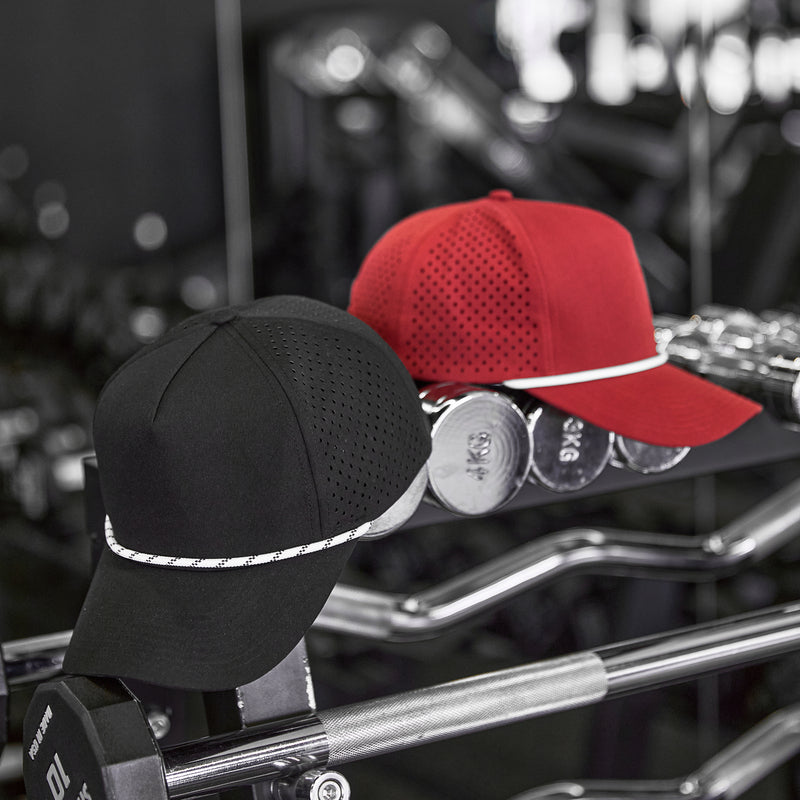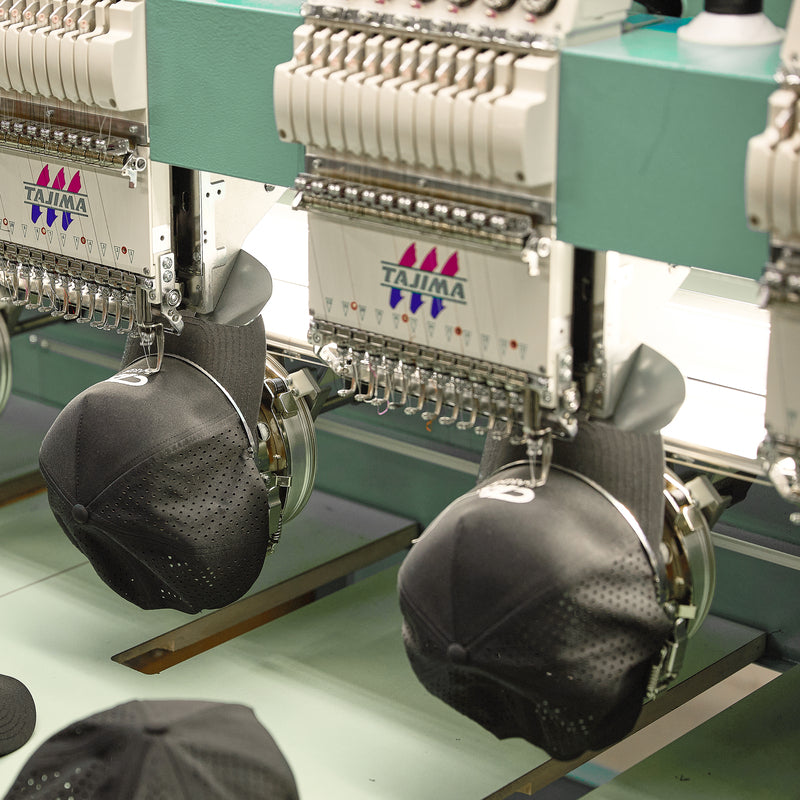I. Introducción
Para personalizar tu gorra, tienes dos opciones populares: bordado e impresión. Cada método tiene sus propias características y ventajas, ofreciendo diferentes maneras de dar vida a tus diseños.
El bordado aporta un toque táctil y texturizado, con intrincadas puntadas que crean un diseño en relieve sobre la tela. Por otro lado, el estampado permite colores vibrantes y detalles intrincados, ofreciendo un acabado suave y sin costuras. Tanto si prefiere el atractivo clásico del bordado como la audacia del estampado, ambas opciones le permiten crear una gorra personalizada y llamativa que represente fielmente su estilo y mensaje.
En el artículo de hoy, presentaremos algunos conceptos básicos relacionados con las diferencias, ventajas y desventajas del bordado y la impresión para diseños de sombreros personalizados. ¡¡Vamos a sumergirnos en ello!!
II. Bordado para gorras personalizadas
El bordado es una técnica de decoración que utiliza aguja e hilo para crear palabras o imágenes en productos. No se utiliza exclusivamente en sombreros, aunque es el método más común para decorarlos.
La ventaja del bordado es que proporciona una impresión extremadamente duradera y vibrante que resiste a cualquier número de lavados. La principal desventaja es que, dependiendo de la complejidad y el tamaño del diseño, puede ser considerablemente más caro que otros métodos de impresión.

III. Impresión para gorras personalizadas
Otra técnica se llama impresión. Con el método de sublimación, se imprime un diseño en papel de transferencia, que luego se coloca en una prensa de calor junto con el sombrero. El calor y la alta presión transfieren el diseño del papel especial a la tela del sombrero. Se imprimen diseños de alta calidad, a todo color y muy duraderos.

IV. Durabilidad y longevidad
El hilo en sí: dado que el diseño utiliza hilo para dibujar los detalles, resistirá el uso diario y los lavados constantes. Solemos decir que un logotipo bordado dura más que la propia prenda. Como pueden ver, el bordado es una forma muy duradera de decorar la ropa.
Este tipo de impresiones desprendidas se relaciona principalmente con la impresión en vinilo y la transferencia térmica digital. Existen diversas razones, pero la principal suele ser el uso de películas de vinilo de bajo costo para ahorrar costos.
Cuando se trata de un logotipo bordado, es muy probable que la gorra se dañe antes que el logotipo. Sin embargo, es mucho más probable que la pierdas antes de que empiece a deteriorarse.
V. Complejidad y detalle del diseño
Al bordar un diseño con muchos puntos, elija una tela resistente y sin elasticidad. Algunos ejemplos son la mezclilla, la lona, la lona, la gamuza sintética, el lino (grueso) y la sarga. Este tipo de telas favorecen la superposición, los reflejos y las sombras en un diseño complejo.
Un diseño de 5000 puntadas puede costar entre $30 y $60, mientras que uno de 8000 puntadas puede costar entre $50 y $80. Para un diseño de 10 000 puntadas, el precio puede oscilar entre $70 y $100 o más. Estos precios son aproximados y pueden variar según la complejidad del diseño.
Además, cuanto más complejo sea tu diseño, más costará imprimirlo. Esto se debe a que los diseños complejos requieren más tinta y más tiempo de impresión. Si quieres reducir los costos, considera simplificar tu diseño o usar menos colores.

VI. Opciones de color y vitalidad
El bordado no reproduce ciertos detalles más pequeños y complejos, ni variaciones sutiles, tan bien como otros métodos de reproducción. La aguja e hilo solo permiten crear diseños con bordes definidos. El desvanecimiento, el sombreado y la gradación siguen siendo muy limitados en el bordado.
Cuando la prenda está en la prensa serigráfica, muchos factores influyen en el grosor del depósito de tinta que se deposita sobre el sustrato. En general, cuanta más tinta se aplique, más vibrante se verá y más fiel al color real de la tinta.
Los colores son un componente importante del bordado a mano. Marcan el tono de toda la obra. Los colores brillantes aportan alegría y diversión, mientras que los tonos oscuros aportan sofisticación.
VII. Costo de personalización
Generalmente, el bordado es más caro que la serigrafía. Para proyectos grandes, algunas organizaciones optan por la serigrafía. Además, normalmente se paga por número de hilos, por lo que bordar logotipos grandes no es la opción más rentable.

VIII. Estilo personal y marca
Teniendo en cuenta la estética deseada, la imagen de marca y la preferencia individual al elegir entre el bordado y la personalización de la impresión.
La estética es el estudio filosófico de la belleza. Recientemente, se ha popularizado por ser tratamientos no quirúrgicos utilizados para reducir los efectos del envejecimiento. A menudo, la estética se utiliza para realzar la belleza natural de una persona.
La imagen de marca es la percepción que el cliente tiene de ella en función de sus interacciones. Puede evolucionar y no implica necesariamente que el cliente realice una compra o utilice su producto o servicio.
La preferencia individual es una forma en que un individuo y/o su familia pueden tomar un rol activo y tener más participación en la elección del proveedor de servicios que mejor se adapte a sus necesidades únicas.
IX. Conclusión
El bordado es una técnica clásica que consiste en coser un patrón en una tela de forma personalizada. El bordado ofrece muchas ventajas, entre ellas: Durabilidad: El bordado es más duradero que la serigrafía, y el patrón suele durar más con esta técnica.
Es importante considerar factores como la durabilidad, la complejidad del diseño, las opciones de color, el costo y el estilo personal al momento de tomar una decisión, además, priorizar la calidad y la compatibilidad con el material del sombrero deseado para lograr sombreros personalizados duraderos y visualmente atractivos.
Eso es todo por hoy, si tienes alguna pregunta nueva, ¡comenta a continuación y háznoslo saber!





